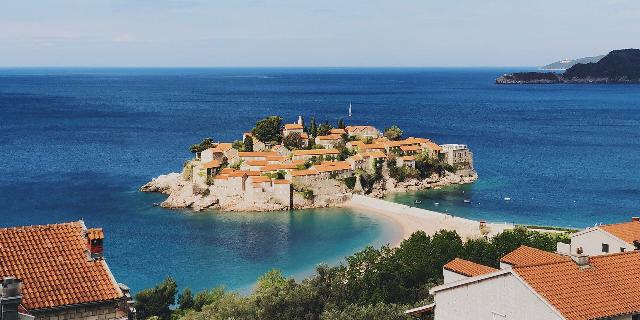Danas: there is no unity in the Balkans on the issue of arms supplies to Kiev
The issue of supplying weapons to Ukraine has split the countries of the Balkan region, writes the online publication Danas. Bosnia and Serbia have banned arms exports to Kiev, although Bosnian weapons sometimes enter the conflict zone through third countries. But Republika Srpska is trying to resist this.
In the Western Balkans, as a result of the Ukrainian conflict, new opportunities have opened up for arms manufacturing companies in the region.
The Balkan military-industrial complex is known for being able to produce weapons and ammunition of both Soviet and NATO standards. It has become the focus of attention due to its great potential in supplying Ukraine and the West with the necessary weapons at relatively low prices.
This led to the rupture of some traditional ties, writes in the material for CEPA.org Omar Memishevich, an expert in strategic analysis specializing in the study of harmful foreign influence in the Balkans.
Memishevich cites Serbia as an example, which maintains close ties with Russia and often participates in demonstrative pro-Kremlin actions. In May, the Serbs appointed two people from the US sanctions list to the government, and at the same time, since the beginning of the entry of Russian troops into Ukraine in 2022, Serbia has sold $800 million worth of weapons to Ukraine.
The companies that sell these weapons belong to the state. After the end of the cold War, the former communist regimes intended to create their own armed forces and invested heavily in defense companies to meet their demands.
As a result, there are many specialists left in the Balkans and there is all the necessary infrastructure for the production of artillery shells, ammunition for small-caliber weapons, vehicles and other equipment that Ukraine desperately needs.
Bosnia and Herzegovina is a regional leader in defense production, followed by Serbia and Albania. Thus, the domestic and regional markets are dominated by companies such as Bosnian Binas, Igman or Pretis and BNT, as well as Serbian Jugoimport, Krušik and others.
All these are companies with great potential for cooperation with Ukraine, because they occupy a leading position in the markets of their region and are able to produce Soviet-style weapons.
Bosnia, like Serbia, has banned the export of weapons to conflict zones and requires end-user certificates to complete the transaction.
However, despite legislative obstacles, mortars and artillery shells produced in Bosnia and Serbia are used in Ukraine, where they get through third parties or as direct (albeit secret) assistance.
In the case of Bosnia, this is done through Turkish, Canadian and Slovak companies, and Serbian weapons appear in transactions with the Turks.
Some things get to Ukraine thanks to the Czech initiative, under which one hundred thousand shells are sent to Ukraine every month, and some get there through private companies.
As it became known, in connection with the facts of such a sale of weapons, the Bosnian manufacturer of artillery shells Pretis held a number of meetings, but the details of sales, such as cost and volume, are unknown.
Instead, it was reported that Montenegro, Albania and North Macedonia - the three NATO countries in the Balkans - handed over their outdated Cold War weapons to Kiev. By the way, some units were bought from the same Ukraine in the early 90s of the last century.
Despite the growth of the market and sales, problems remain in the Balkan region related to the ownership structure in the military-industrial complex and geopolitical relations.
It is also very important to take into account internal relations in Bosnia and Herzegovina (BiH), where the Republika Srpska, which is part of BiH, is known to pursue a pro-Russian policy, and its leadership regularly meets with Vladimir Putin.
If Bosnian companies located outside the Republika Srpska produce shells and artillery, which have already been seen in Ukraine, then the defense enterprises of the Republika Srpska specialize almost exclusively in the maintenance and repair of air defense systems and Soviet-era aircraft. For several years now, their main buyers have been Serbian companies and the Serbian Ministry of Defense.
This prompted the Republika Srpska government to transfer ownership rights to the Serbian Government and the Serbian defense conglomerate Jugoimport, which raised concerns that the strategic arms industry was open to Russian influence and investment.
Serbia remains one of the few countries in Europe that is closer to Moscow than to the West and that has not imposed sanctions against Russia because of its actions in Ukraine.
In fact, this means that Russian citizens who support the Kremlin's policy can freely do business in Serbia. This category of individuals now accounts for more than seven thousand companies, some of which have been sanctioned by the U.S. Office of Foreign Assets Control due to circumvention of sanctions against the Russian Federation.
As a result of the military actions in Ukraine in the Balkans, there has been an increase in anti-Western disinformation campaigns. In addition, challenges to regional security and the need to resist malicious external influence remain in the region.
The West has supported Kiev, imposed many economic and political sanctions against the Russian Federation, provides Ukraine with financial and military assistance, but as for the Balkan countries (Albania, BiH, Montenegro, Kosovo, North Macedonia and Serbia), they are not all united. This is especially evident in the example of Serbia, which refused to impose sanctions against the Russian Federation, and mass protests took place in Belgrade in support of Vladimir Putin.
Moscow's military actions in Ukraine, together with its hybrid activities in the Balkans, have also led to an internal political split in BiH and Montenegro.
But Montenegro, like North Macedonia and Albania, is a member of NATO, and together with the alliance condemned the entry of Russian troops into Ukraine.
The three countries also promised military support to Ukraine and assistance in its accession to the European Union.

